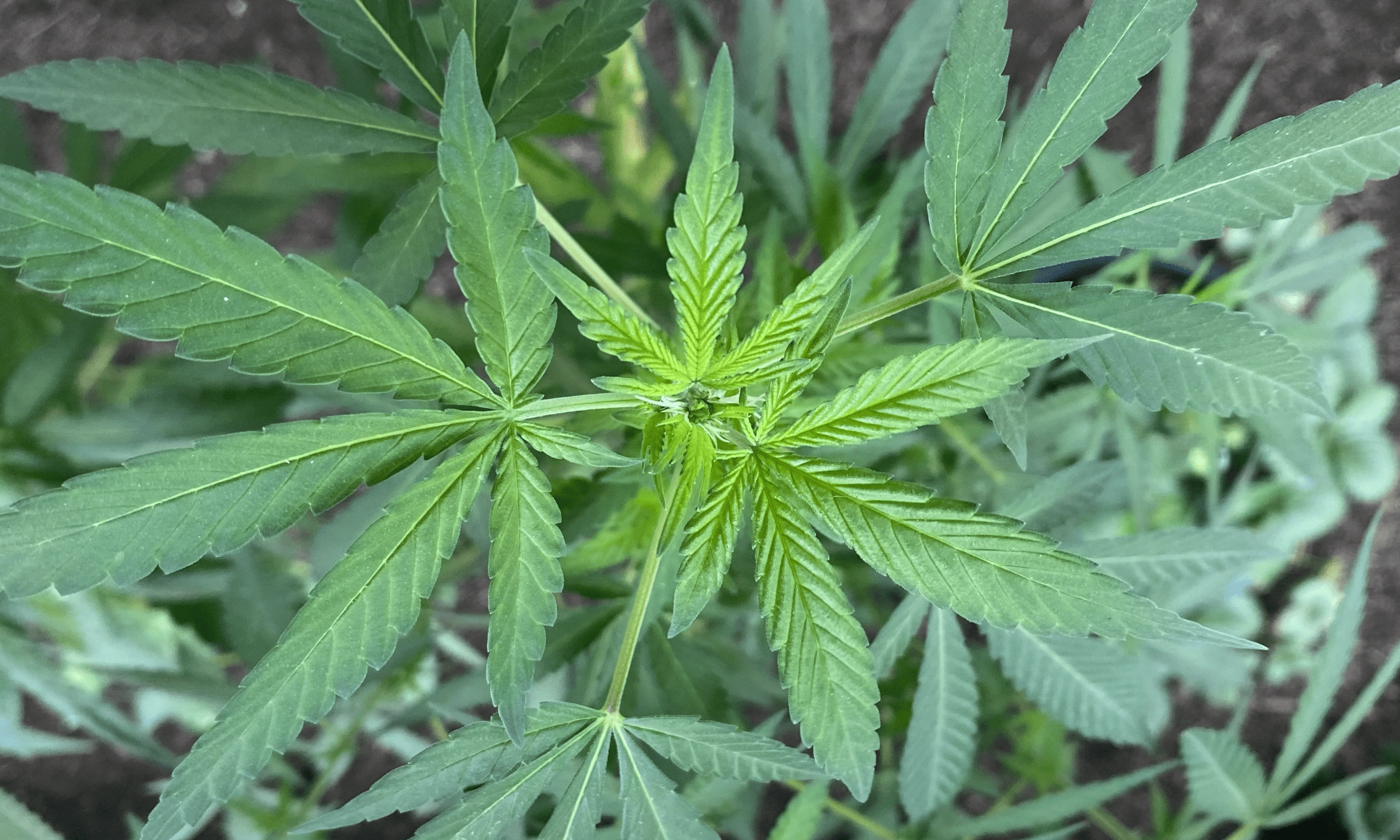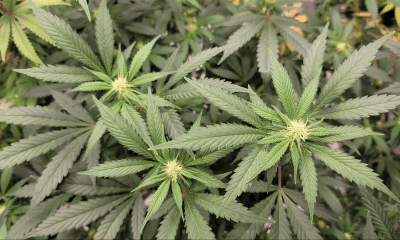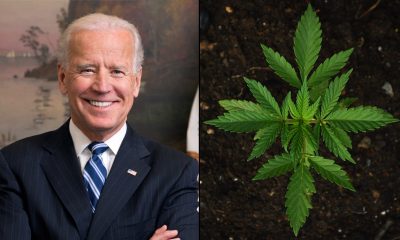Politics
Missouri Democratic Party Supports Marijuana Legalization But Should Remain Neutral On Ballot Initiative, Committee Recommends

The Missouri Democratic Party says it supports marijuana legalization—but a key panel within the political organization is recommending it take a neutral position on a cannabis reform initiative that will appear on the November ballot amid concerns over provisions that deal with expungements and licensing.
The party’s State Committee met earlier this month to discuss several four proposed constitutional amendments that made the ballot, and it released its recommendations and explanations on Monday.
For Amendment 3, which is being backed by Legal Missouri 2022, the committee said that its recommendation is for the state party to adopt a stance stipulating that it “supports the legalization of marijuana, but does not have an official position” on the ballot measure.
“Democrats support legalization of recreational marijuana use. However, as written Amendment 3 may negatively impact minorities, people of color, and low-income earning Missourians,” the committee’s explanation says. “Democrats have concerns about the expungement provisions laid out in the amendment, as well as making it difficult for those who do not currently have a license to enter the industry.”
In contrast to Missouri, the Arkansas Democratic Party, as well as Democratic gubernatorial candidate Chris Jones, are throwing their support behind a legalization initiative that will appear on the state’s November ballot. The fate of votes for that measure is currently being considered by the Arkansas Supreme Court following a legal challenge.
While a variety of cannabis advocacy groups—including local NORML chapters and the St. Louis NAACP—have endorsed the Missouri constitutional amendment, other reform allies have made clear that they will not be supporting the proposal because they feel it doesn’t adequately address equity issues.
A group of activists recently formed a campaign—comprised of lawmakers, a former Missouri lieutenant governor, legalization supporters and the director of the state chapter of Americans for Prosperity—to convince voters to oppose the initiative and compel the governor to add cannabis reform to the legislative agenda of a special session.
To that end, Rep. Ron Hicks (R) introduced a revised marijuana legalization bill last week, with the hopes that the filing will spur the governor to expand the special session to allow consideration of the emergency reform legislation as an alternative to a cannabis ballot measure.
The bill was filed just one day after the Missouri Supreme Court gave a final ruling on a legal challenge to the activist-led initiative that secured its placement on the ballot.
Hicks’s legislation has been slightly revised since it was introduced and advanced through committee during the regular session earlier this year. One key change is that there’s now an emergency clause that references the ballot initiative, making it so the legislation would take effect immediately upon passage.
Gov. Mike Parson (R) recently said that he would not add marijuana legalization to the agenda for the special session focused on tax relief and agriculture issues that convened last week. However, Hicks said in a press release that “it is my hope that legislative action on my Marijuana Freedom Act will incentivize the governor to support passage of this legislation.”
Meanwhile, a key Missouri Democratic lawmaker who chairs the state’s Legislative Black Caucus, Rep. Ashley Bland Manlove (D), also recently called on voters to reject the legalization initiative.
Bland argued that the initiative lacks holistic provisions to make the cannabis market equitable, unnecessarily adds penalties for certain offenses and falls short of resolving the racial disparities of cannabis criminalization—though she conceded it is likely to be approved by voters.
Some of the state’s Democratic politicians do support the legalization ballot measure, however.
Democratic Senate candidate Trudy Busch Valentine, for example, tweeted on Friday that she was backing the initiative, citing its expected tax revenue and other benefits.
I will support the ballot initiative to legalize adult recreational marijuana in November. It will:
✅Regulate marijuana
✅Prevent people from dealing with illicit dealers who might try to get people hooked on other drugs
✅Produce tax revenue for mental health treatment #MOSen— Trudy Busch Valentine (@buschvalentine) September 16, 2022
A lawsuit filed last month sought to keep the reform proposal off the ballot after it was certified by the secretary of state. But after two lower courts dismissed the challenge, the state Supreme Court delivered the final word that the legal battle is over last week.
Here’s what the Legal Missouri 2022 initiative would accomplish:
Adults 21 and older could purchase and possess up to three ounces of cannabis.
They could also grow up to six flowering marijuana plants, six immature plants and six clones if they obtain a registration card.
The initiative would impose a six percent tax on recreational cannabis sales and use revenue to facilitate automatic expungements for people with certain non-violent marijuana offenses on their records.
Remaining revenue would go toward veterans’ healthcare, substance misuse treatment and the state’s public defender system.
The Department of Health and Senior Services would be responsible for regulating the program and issuing licenses for cannabis businesses.
Regulators would be required to issue at least 144 microbusiness licenses through a lottery system, with priority given to low-income applicants and people who have been disproportionately impacted by drug criminalization.
Existing medical marijuana dispensaries would also be first in line to start serving adult consumers with dual licenses.
Regulators could create rules around advertising, but they could not be any more stringent than existing restrictions on alcohol marketing.
Public consumption, driving under the influence of cannabis and underage marijuana use would be explicitly prohibited.
A seed-to-sale tracking system would be established for the marijuana market.
Local jurisdictions would be able to opt out of permitting cannabis microbusinesses or retailers from operating in their area if voters approve the ban at the ballot.
The measure would further codify employment protections for medical cannabis patients.
Medical marijuana cards would be valid for three years at a time, instead of one. And caregivers would be able to serve double the number of patients.
—
Marijuana Moment is tracking more than 1,500 cannabis, psychedelics and drug policy bills in state legislatures and Congress this year. Patreon supporters pledging at least $25/month get access to our interactive maps, charts and hearing calendar so they don’t miss any developments.
![]()
Learn more about our marijuana bill tracker and become a supporter on Patreon to get access.
—
A poll released earlier this month raised questioned about whether the initiative will succeed this November, with a plurality of voters saying they oppose the proposed constitutional amendment.
But the campaign pointed out the the same firm behind the survey previously missed the mark when it found just slim support for a 2018 medical cannabis ballot measure that ultimately passed overwhelmingly. John Payne of Legal Missouri 2022 also led that successful medical marijuana legalization campaign.
Meanwhile, state health officials are already taking steps to prepare for voter approval of the legalization measure.
A different campaign, Fair Access Missouri, separately explored multiple citizen initiatives this year with the hopes of getting at least one on the ballot, but did not end up submitting signatures for any of the measures.
















